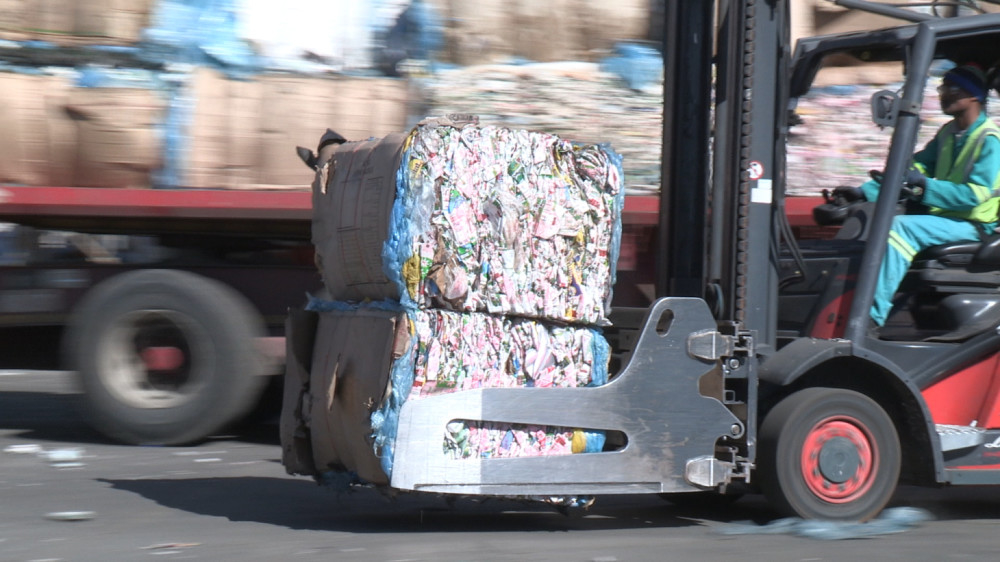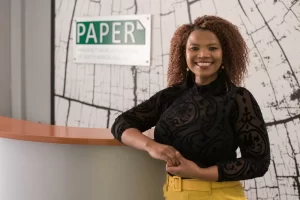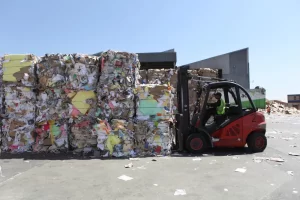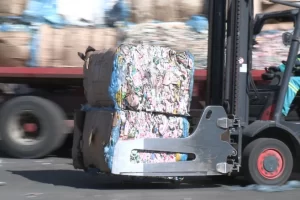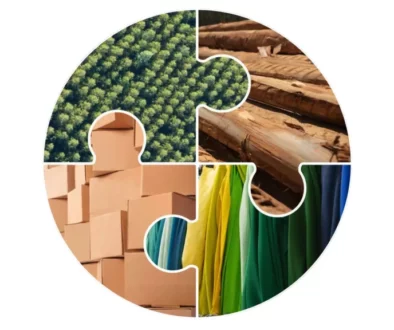Paper recycling: Think before you throw
THINK BEFORE YOU THROW AND CHANGE YOUR RUBBISH TO RECYCLING RATIO
Johannesburg – March 15, 2019 – Take a moment to count how many rubbish bins you have in your home? What about recycling bins? Think about how much refuse goes out with the weekly municipal collection and how much you are diverting from landfill by recycling.
“With a little bit of thought and a few extra bins or containers, South Africans can change their rubbish to recycling ratio significantly,” asserts Anele Sololo, general manager of the South African paper recycling association RecyclePaperZA.
“You’re likely to be throwing away paper products or packaging that you didn’t know are recyclable,” she suggests.
According to a report released by Statistics South Africa in 2018, 90% of an estimated 59 million tonnes of general waste produced in 2011 ended up in landfills, while only 10% was recycled.
Separating waste is the first step
“Separation-at-source – the first step in the greater recycling process – doesn’t have to start and stop in the kitchen. A variety of household paper products – especially packaging commonly found in the bathroom, office or right at your front door – can be recycled into new paper products,” Sololo adds.
The next steps in the process are the collection or drop-off of your recyclables and their sale by a collector to a buy-back centre. In the case of paper, it is sorted into different categories – white paper, magazines and newspapers; cardboard, liquid board packaging, and finally taken to a paper mill to be made into new paper and packaging products.
Know your recyclables – from the bathroom to the kitchen sink
You might be astounded at the number of common household paper items and materials that are recyclable.
Bathroom:
- Cardboard tubing from the toilet paper roll
- Paper packaging used for toiletries like toothpaste, cosmetics or tissues
- Boxes used for over the counter medicine
Office:
- Paper cups (minus the lid – this is made of polystyrene but can be recycled via other means)
- Copy and printing paper, notebooks (minus wire binding and non-recyclable covers)
- Professional journals and trade magazines
- Paperback books – you could donate old books to a library or community centre but for those that are worn, a new life awaits through recycling
The front door:
- Post – if you still get any, including envelopes, postcards and advertising mail
- Magazines
- Newspapers
- Cardboard boxes from your online shopping
Kitchen:
- Boxes from cereal, biscuits, tea, sugar, pasta, doggy treats and other dry goods
- Milk or juice cartons
- Pizza boxes and other clean takeaway packaging
- Egg cartons and take-away cup holders
- Paper shopping bags from retail stores or restaurants
- Tubing from kitchen towel rolls
RecyclePaperZA suggests placing small paper recycling bins in common areas of your home. “At the front door, in your home office, bathrooms and the kitchen are all great places,” says Sololo.
“Always ensure that a recyclable paper-based item is dry, clean and free of food residue,” concludes Sololo.
Now that you’re in the know, think before you throw.

